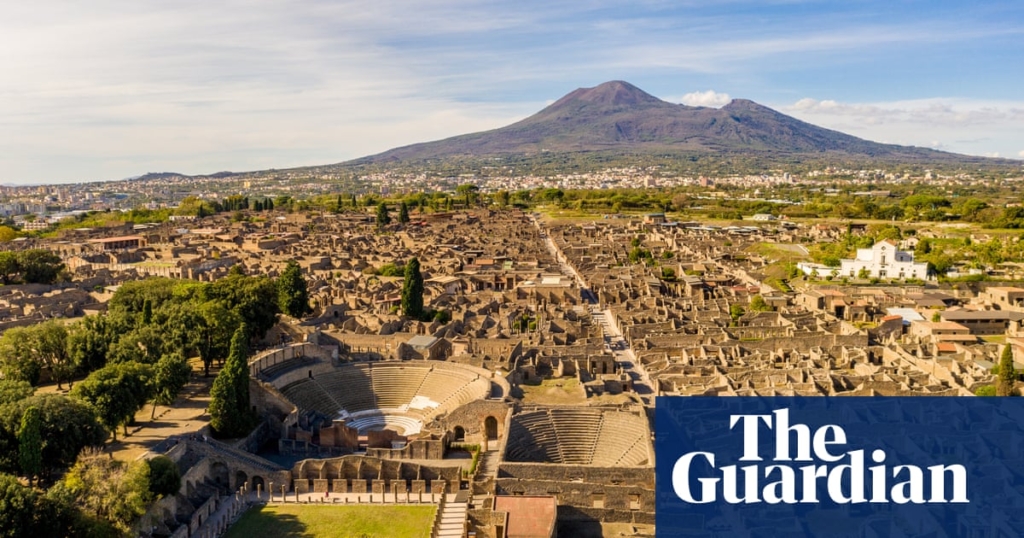The date on which Mount Vesuvius erupted, wiping out the lives of thousands in ancient Pompeii and other nearby towns, has long divided scholars.
But a study by Pompeii experts suggests that the Roman author Pliny the Younger probably had it right all along: the volcano erupted on 24 August AD79 and not later in the year as has been suggested.
Pliny wrote about the eruption in two letters after having witnessed it from the home of his uncle, Pliny the Elder, in Miseno. His account of when Vesuvius unleashed its fury started to be disputed in the late 18th century, with 24 October AD79 becoming the mostly widely hypothesised date. A charcoal inscription, dated 17 October, excavated in Pompeii’s archaeological park in 2018, added credence to this theory.
Another written account of the eruption was provided by the Greek-Roman historian and senator, Cassius Dio, who referred to it occurring in the autumn, which in ancient Roman times began on 8 August.
Gabriel Zuchtriegel, the director of Pompeii archaeological park, said there was “no documented evidence” to confirm the theories on the later dates.
“Over the years, other dates have been hypothesised, based essentially on errors and misunderstanding,” he added. “Only in the second half of the 20th century did modern philology clearly establish that the oldest manuscripts have 24 August as the correct date. There are no alternatives and so it’s either you confirm Pliny or you have to simply assume that he made a mistake.”
The study also analysed climate change and agricultural practices in ancient Pompeii. Zuchtriegel said that finds of ancient plants and fruits at the site, for example chestnuts, which today are associated with ripening during autumn, tended to contrast with Pliny’s date.
“People have assumed that nature and climate were always more or less the same, but today we are very aware that this is not the case,” said Zuchtriegel.
“It’s likely that Pliny was right in dating the eruption to 24 August and that we might need to reconsider finds of fruits and plants that seem in contrast with this,” he said. “This could also tell us something about climate change, biodiversity and conservation techniques in the ancient world. For example, still today there is a kind of chestnut that ripens in August, so finding a chestnut in ancient Pompeii doesn’t necessarily prove Pliny wrong.”







Yorumlar kapalı.